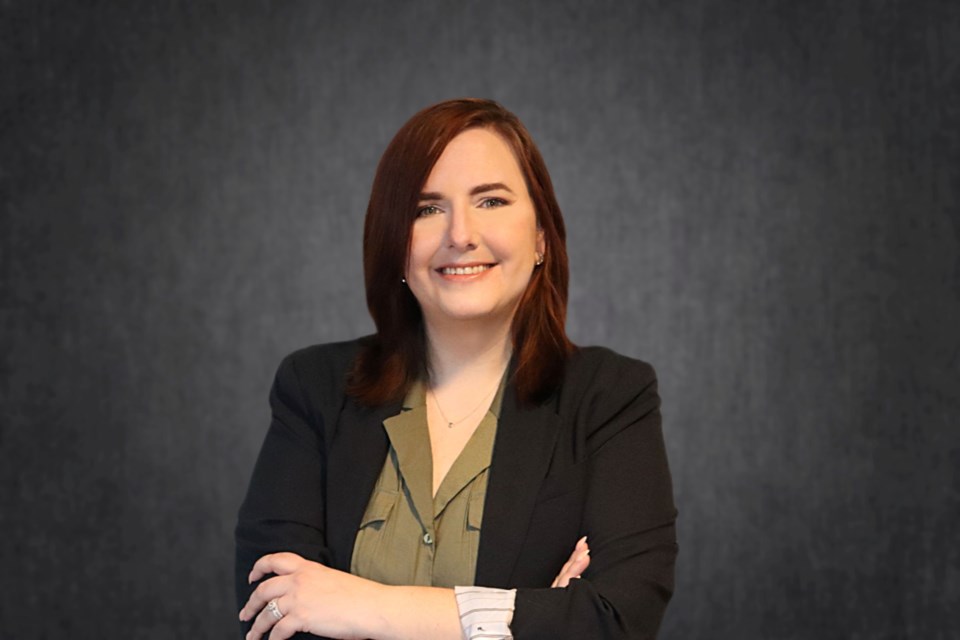Elizabeth (Liz) Wood lives with several severe mental illnesses, including agoraphobia. In her case, this means she’s only able to tolerate going a few blocks from her home.
As vice-president and chief compliance officer, working remotely with CMI Financial Group, Wood is also a successful business executive.
She wants to spread the message that “mental illness doesn't have a face, it doesn't have an image, it doesn't have a look, because it can be absolutely anyone or anything, and it doesn't have to inhibit you,” she said.
“I always say I don't take no for an answer. If there's a barrier, if there's an obstacle, and you can't go through, go around it, forge a new path, build a bridge over it.
“There's always a way to get through it, you know, surround yourself with people that are willing to take that journey with you and invest in you and support you in that.”
To get to this point, the Hamilton resident has put 15 years of post-secondary education under her belt while working remotely for much of that time.
She has a BA in psychology from Athabasca University, which at the time was one of the only institutions offering remote learning. Realizing that working in social services was going to be challenging due to her mental health, she switched gears.
Wood enrolled in the bachelor of commerce program at Thompson Rivers University, and around the same time, she started as a bookkeeper with the company she still works for today.
Working her way up the corporate ladder, Wood realized she wanted more business education to help her in her role. That’s how she came to enrol in Laurentian University’s fully online Master’s of Business Administration (MBA) program, graduating in 2022.
“It was a wonderful experience,” said Wood, who has good things to say about everything from the disability accommodations at Laurentian to her professors.
“Oh, my profs are amazing,” she said. “So knowledgeable, diverse backgrounds, really interesting combination of theory — so experienced in academia, many of them had been published — but also in practice, which I think is particularly important for an MBA.”
Wood said when people hear her story, they’re probably drawn to her perseverance in the face of a challenging situation.
But she also gives credit to her support team, including her husband, sister and nephew, who live with her, and her parents, who live next door.
She also gives props to her boss at CMI Financial Group, who “doesn't see barriers, he doesn't believe they should exist. So he believes that everybody who has something to contribute should be able to contribute and just simply will remove the barriers.
“And in his case, he thought that a remote work environment would allow him to access the best and the brightest from across the country and not be limited by geographical location.”
Wood has also been working for several years with a psychologist to deal with her mental illnesses, which, besides agoraphobia, include panic disorder, generalized anxiety disorder and PTSD. Prior to the pandemic, she wasn’t able to leave her home at all.
But it was actually thanks to the great disruptor of the pandemic that Wood was able to access a psychologist online, “because suddenly something they said couldn't be done, magically could be done. I've been in treatment ever since, and taking large strides.”
Now that she’s able to stray a couple of blocks from her home, she’s at least able to bring her dogs for a walk.
Wood has good days and bad, and sees the benefit in giving herself some grace on those not-so-good days.
She encourages others living with mental illness and disabilities to “forge your path,” whether that means seeking treatment or education or work opportunities, wherever you happen to be in your life.
“Whatever it is, forge your path, and don't let anybody tell you you can't,” Wood said.
Heidi Ulrichsen is Sudbury.com’s assistant editor. Women & Girls is made possible by our Community Leaders Program.



